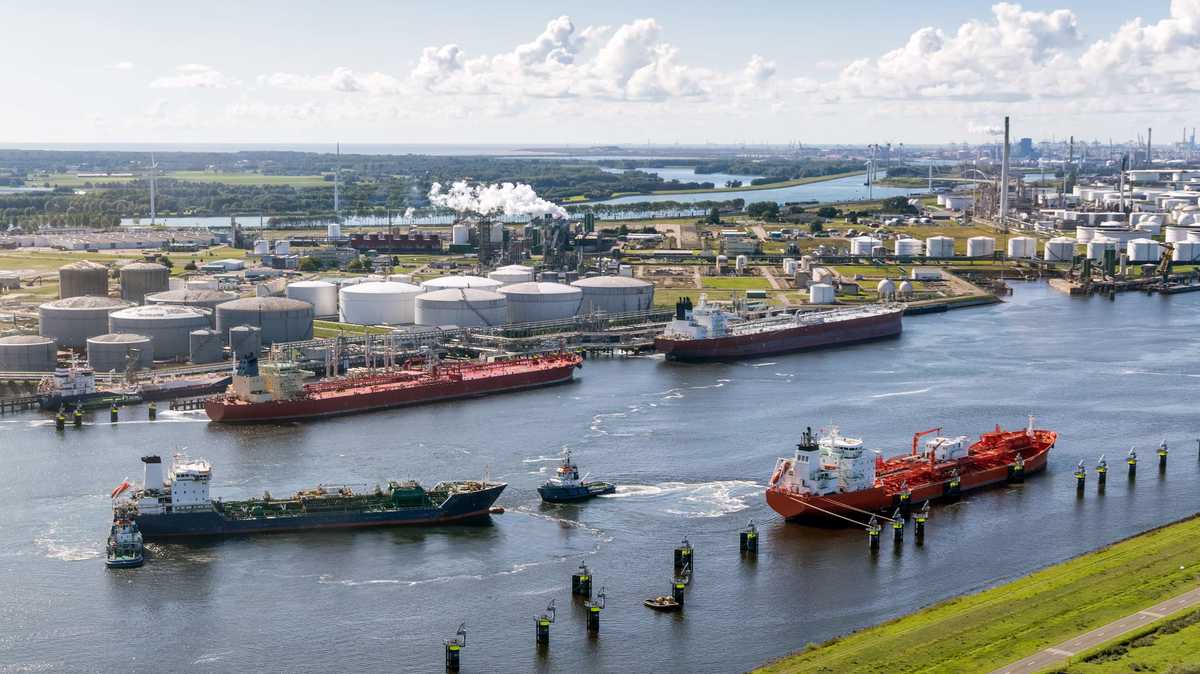FuelEU Maritime officially adopted in Europe
The first EU regulation aimed at decarbonising the maritime sector will become law this autumn and implemented from January 2025.
 PHOTO: Aerial view of the Port of Rotterdam. Getty Images
PHOTO: Aerial view of the Port of Rotterdam. Getty Images
After it passed through the European Parliament, FuelEU Maritime has now officially been adopted by the European Council. The legislation will be published in the EU Official Journal after the summer and become law in 20 days.
“The new law will provide legal certainty for ship operators and fuel producers and help kick-start the large-scale production of sustainable maritime fuels, thus substantially delivering on our climate targets at European and global level,” said Spanish transport minister Raquel Sánchez Jiménez.
The law will be in force from January 2025.
New mandates for maritime emissions
Ships will be required to gradually decrease its greenhouse gas (GHG) intensity in steps, starting with a 2% drop by 2025 that is scaled up to 80% by 2050. Moreover, at least 2% of fuel used on board vessels must come from renewable fuels of non-biological origin (RFNBOs), such as hydrogen-based fuels with zero-emission potential.
The Council has also adopted the Alternative Fuel Infrastructure Regulation that will require all passenger and container ships to use shore power supply for all of their electricity needs while docked at major EU ports from 2030.
Law underlines shipping decarbonisation - Danish Shipping
FuelEU Maritime underscores “how shipping must be regulated and how shipping must contribute to climate neutrality in the EU in 2050,” said Jacob Clasen, director of Danish Shipping. According to him, the law will promote investments in green shipping and encourage production of low- and zero-emission marine fuels.
“It gives both shipping companies, investors and fuel producers something to navigate so that we can speed up the green transition," Clasen said.
‘Not ambitious enough’ - T&E
Meanwhile, Transport & Environment (T&E) argued that the FuelEU Maritime regulation in its current version will leave the EU dependent on fossil fuels even after 2050.
“The review of the EU’s FuelEU Maritime also shows that EU shipping will fall behind where it needs to be in every decade up to and beyond 2050, meaning the sector will almost certainly overshoot the target of keeping global heating to 1.5 degrees (Celsius),” said T&E researchers.
T&E also claims that fossil fuels will still provide 75% of the "energy needs" of European shipping in 2040 - even if the proposed regulation became law.
“The EU’s failure to get shipping to zero by 2050 puts the bloc’s entire Green Deal at risk. Europe’s policymakers must go bolder and revise the targets immediately following next year’s European elections,” said T&E's shipping analyst Alex Springer.
By Konica Bhatt
Please get in touch with comments or additional info to news@engine.online





